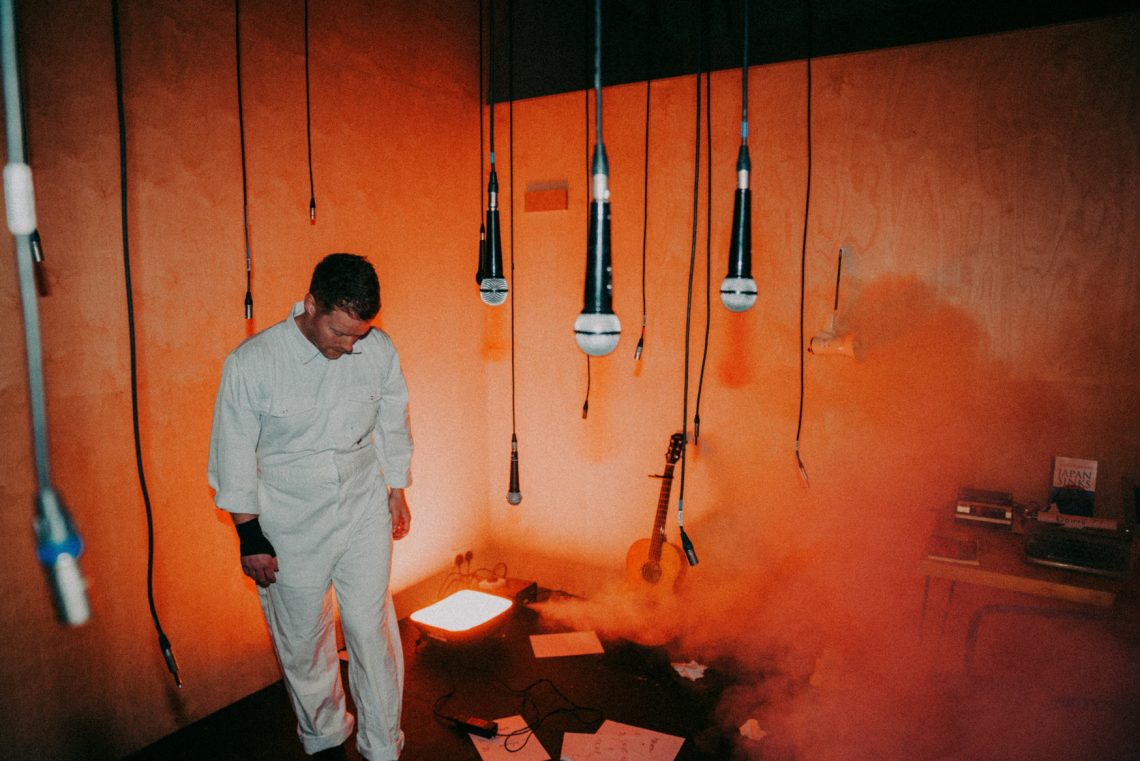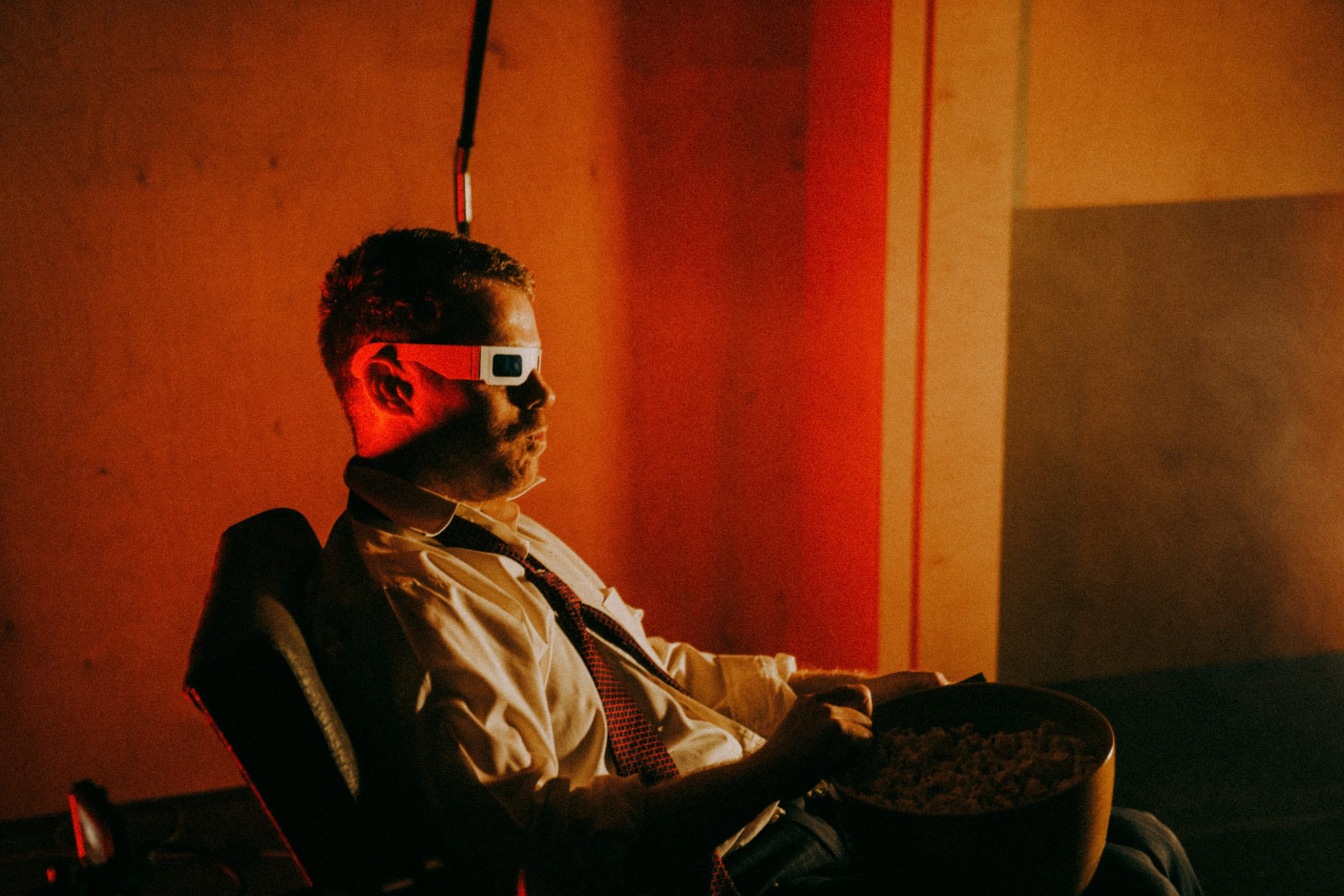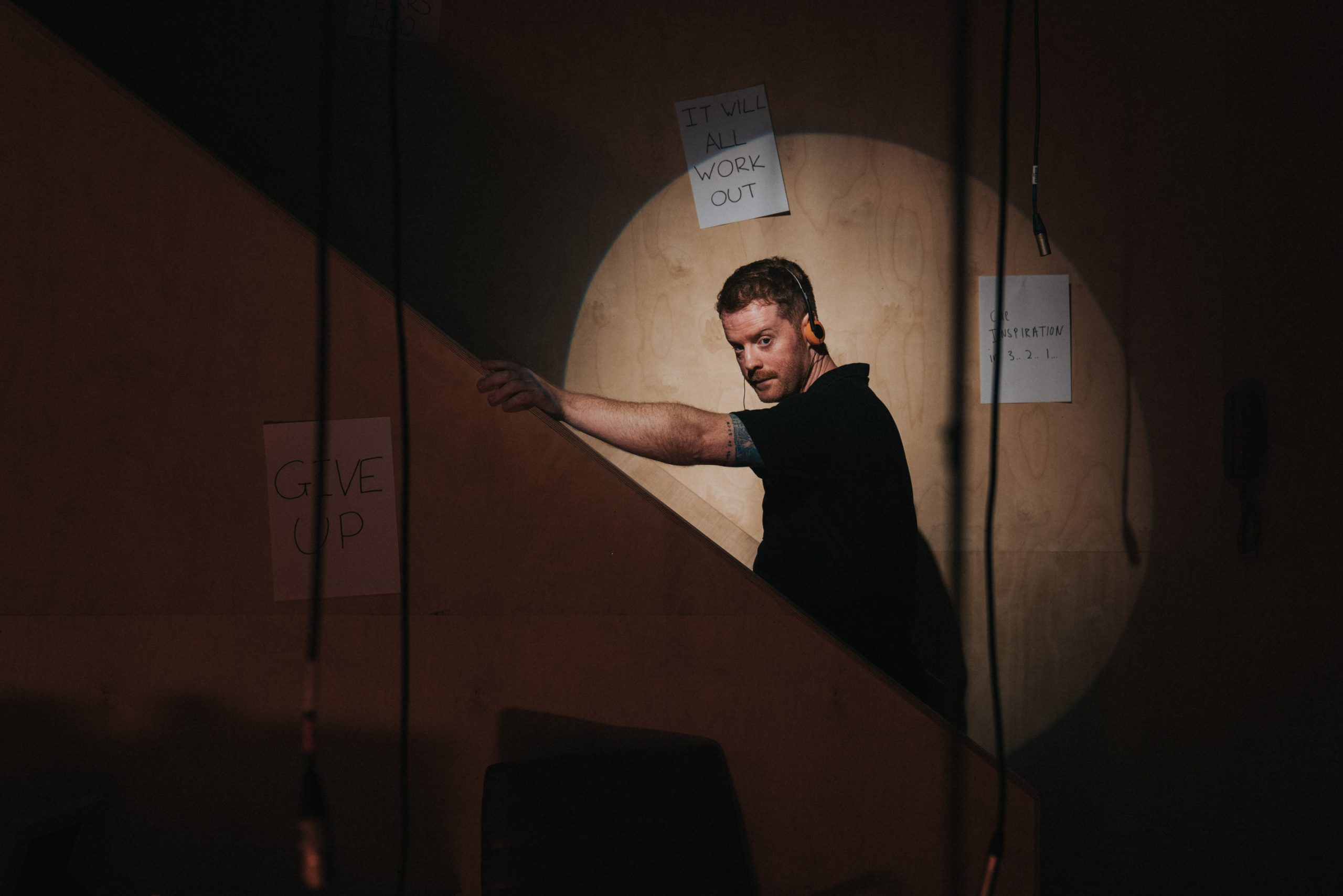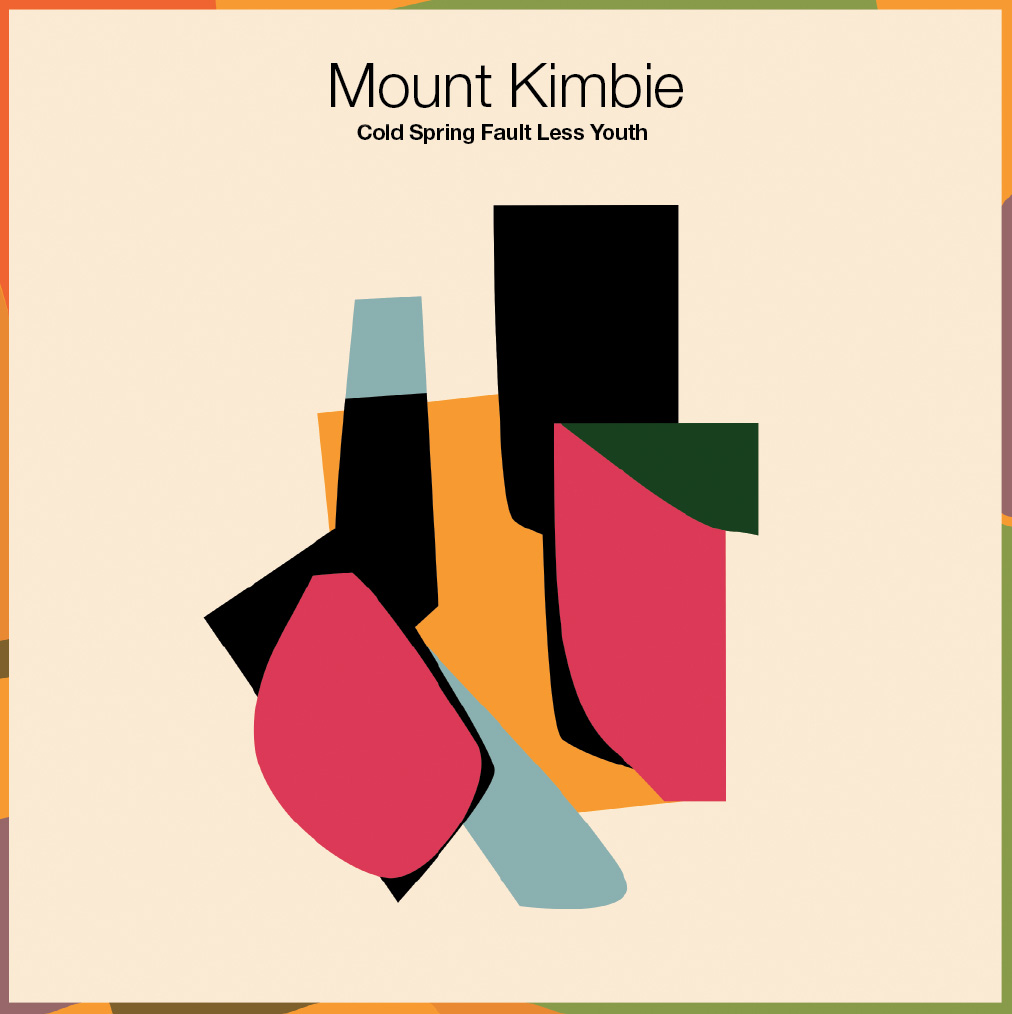At The Thin Air, we’ve long championed the singular journey of Ciaran Lavery, tracing his path from soul-mining songwriting to boundary-pushing projects. Now, he’s back with Light Entertainment, an immersive live theatre experience set to transform the Lyric Theatre in Belfast next Thursday, 14th November. Marking a standout moment in this year’s Belfast International Arts Festival, Light Entertainment is poised to break the mould, pulling the audience into Lavery’s psyche where music, satire and raw introspection collide.
In this overdue catch-up, we reconnect with Lavery to explore the journey behind Light Entertainment – how it evolved from an album and short film into a live spectacle. We dig into the inspirations, challenges, and creative restlessness that fuel one of the most ambitious performances of his career.
Go here to buy tickets to Light Entertainment
Hello Ciaran. Next week you debut your immersive live music experience Light Entertainment at the Lyric. Take us back to the origins of the project – how did it bring together Light Entertainment as both an album and a short film, and how did it evolve into this live experience?
The actual process of writing the songs came together quite quickly once I had figured out the overarching theme that I was keen to explore. I had spent a fair chunk of time considering how the idea of this dystopian future depicted in any David Cronenberg movie or Ray Bradbury book was not a distant or unrealistic reality, but, and not to sound like the acid has just kicked in, it was lining up with the current modern world we are living in (Trump 2.0, for example). I started thinking about my place in that world, how I interact or try to avoid it, my vices and survival methods. I was more or less creating the landscape for this world, and so the matter of placing songs into it felt exciting.
In terms of the short film, I guess it was an extension of this desire to approach an album campaign differently, and since this world creation was well underway I began to play with screenwriting (I do not profess to be a screenwriter) and this visual representation of the aforementioned dystopian present. At one point I was writing the songs and the script simultaneously, which was an interesting challenge.
I’ve had a sneak peek at the film and I really enjoyed it. There’s this wonderfully hypnotic, disembodied energy throughout. Before we dive into specifics, what were your main cues and inspirations for the project, both visually and tonally?
I was striving for something that had a real visceral desperation about it, something that could be both unsettling and familiar, you know, the light stuff. Myself and the directors Shaun and Ciaran (Re-Act Productions) referred to this ‘unreal reality’ throughout the shoot and editing process. Initially, I talked about the short film as a mocumentary of the album capturing process, and in many ways it is, though one that is admittedly based in this entirely skewed version of the world. Visually, we referenced the claustrophobia of Requiem For A Dream through these very grotesque and unflattering camera angles, as well as David Lynch’s work and the very fantastic short Unedited Footage of A Bear by Adult Swim (I can only imagine many of you have seen this, but if not do not hesitate to pause on this and go watch it immediately).
The film beautifully tackles those seemingly endless psychic dead-ends that creatives inevitably face—imposter syndrome, self-actualization, the whole creative process. It hits like a kind of self-exorcism, taking it from first idea to where it is now. Did it feel like that to you?
I often think of being a songwriter as possibly the most selfish occupation to exist, one that offers space for me to explore my emotions and feelings and a soapbox from which I get to present these to friends, family and strangers. It is utterly bizarre when you think about it, but also a rarity. How many people in their lifetime really get the time and audience to explore innermost thoughts in front of. When I’m at my worst the self-exorcism is exactly how digging for creativity can feel, the utter tragic and self-indulgent helplessness of it all. Considering it in retrospect is like watching a character in a period drama fall pitifully into their fainting chair due to some injustice or heartbreak, but at a time when creative cul-de-sacs are at every turn it is absolutely justified. Thankfully I like to think that I’m self-aware enough to know when I may be bashing my head against the wall, and so I find it much easier to pivot and try to find another way in or around the problem. Still, those memories of glaring at a page, willing a sentence to find its way on there by some means of miraculous telepathy are very present and very real.
I know you’re an avid reader – did any particular books, novels or short stories leave their mark on the project’s energy or character?
I was very careful not to lean too heavily on the dystopian back catalogue that I steamrolled through in my student days, for fear that I would end up one step away from a Che Guevara and weed leaf poster on the wall, respectably, but they were ever-present when it came to imagining this unreality. There were a few standout references that I either kept on my person or close by when fleshing the world out – Frank Choi’s poem ‘On The Night of The Election’, the webtoon ‘Everything Is Fine’, Discovering Scarfolk (lovingly discovered at Analogue Catalogue) and Sakaya Murata’s ‘Earthlings’. All recommended.
Ever since your days with Captain Kennedy, pre-Not Nearly Dark, you’ve always had a sharp grasp on the irreducible absurdity (dare I say, silliness) of the artist vs audience dynamic. You know, that act of standing in front of people and saying, “Here I am, Ciaran Lavery, musical artist. Please listen to what I have to say.” This, of course, despite your obvious talents and the recognition that has come with them. Is that how it feels? And if so, how does Light Entertainment address that particular phenomenon?
It’s pretty much like pantomime, isn’t it? From the stage positioning to where the audience are situated, the cues for participation and the classic “this is our last song” that prefaces the inevitable encore, everything is familiar and in many ways comforting and safe. At times I have had this borderline obsession with how to shake up the format and separate my shows from any other show, or just my show from the last show I played. Some of this is brought on by fear of stagnancy, admittedly, but I have also been long irked by this desire to offer more to paying punters. After our two-year-plus hiatus from public gatherings and the very real discomfort it still causes people to have to endure large crowds, this desire became even more important to me, and because I was already creating something larger than a standard album campaign I figured that it would be a disservice to the album and larger world creation if I didn’t attempt to bring it to a live audience.
The show at the Lyric hasn’t happened yet, but I have a strong feeling it’s going to deliver on the promise of smashing the fourth wall. As the press release puts it, you’ll be inviting the audience into your innermost concerns about the show. But I wonder, is there such a thing as overthinking an experience that’s all about overthinking? And if so, where do you fall on a scale from “1” to “considering sending a body double”?
Haha, that made me smile when I read that, and for someone that suffers from facial emotive response that is high praise indeed. A show based around the impossibility of building and presenting this kind of show in front of a live audience feels like a fitting journey to take people on. Everything from positioning of the band onstage to set dressing and even my own internal/external dialogue will be revised and displayed in a way that I hope is refreshing to the audience. I have been meticulous about this process, though always leaving room for spontaneity, which I think is a key component of live music. Not only do I want to consider how the audience might see, hear and feel things, but I also want to create a bubble that they can step into and know that we’re all going to experience this together.
Without giving too much away, you’ll be joined on the night by Joshua Burnside and Ryan McMullan—two artists the music press has been known to call “songsmiths,” “troubadours,” and other such kneejerk labels. It’s something you’re no doubt used to by now, but I imagine it still irks a bit. With Light Entertainment—live experience, short film, and album—are you hoping more critics will see you as Ciaran Lavery: artist, visionary, or something else entirely?
Dr Lavery is actually how I would want to walk away from this. In truth, and thankfully, the longer I have existed in this skin and on this big skinny rock the more comfortable I am in the skin I exist in. I have really enjoyed the process of releasing the songs from this record because I made a conscious decision to remove all expectations, which means my bar is not just low, it does not exist. I have, in essence, 8 mile’d myself. But with this removal of expectations, I have been able to just enjoy the process of releasing music, of people reacting to it, and their opinions. I cannot change anything, that decision was made on the day the album was mastered and the short film was edited. Of course, I hope like the album too, at the end of the day I still have an ego to feed.
Lastly, speaking of visionaries, I’m not sure if it’s common knowledge yet, but if it is, what was it like working with Daniel O’Donnell on the film? Was it more like ascending to heaven, certain of eternal salvation, or more like stoking the fiery pits of Hell bare-handed while listening to that U2 album that was forcefully added to everyone’s iPhones back in 2014, on a constant loop?
Daniel (we’re on first-name terms now) was the human manifestation of surreality that I was striving for in the short film. Meeting him in person was about as weird and wonderful as you could imagine. He was the consummate professional, asking nothing between takes other than if I had any notes or if that was what I was after. I cannot express how utterly strange it was watching him regurgitate lines back to me that my partner Nikki & I wrote on the living room floor, taking breaks every so often and saying “he’ll never do this.” In many ways his character is truly the darkest element of the short film and Light Entertainment world, existing as the tempter to retreat completely into a world without any physical connection or relationship with the world outside, so I was thrilled he owned the role so wholeheartedly.








